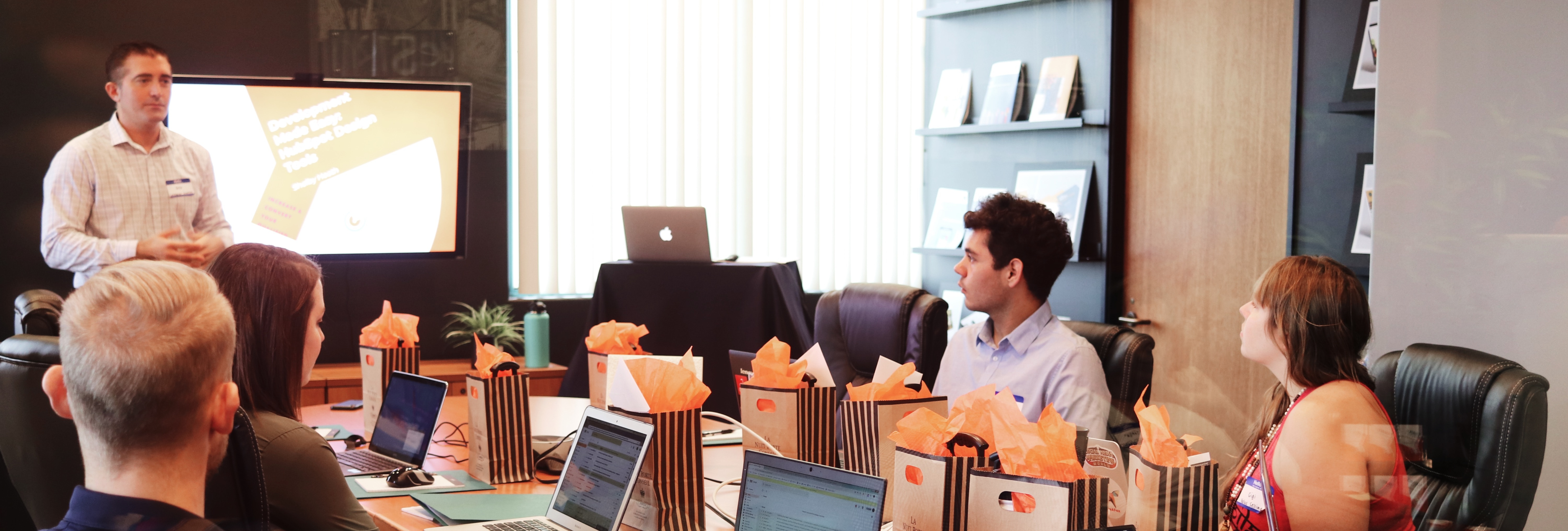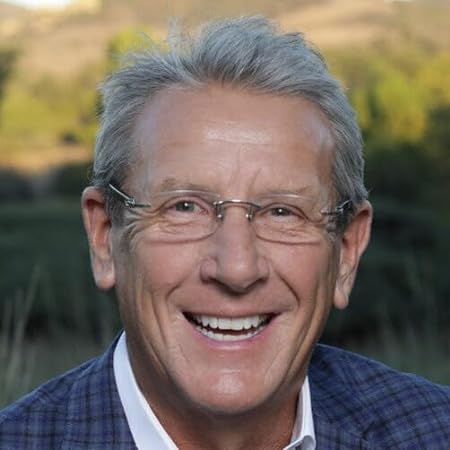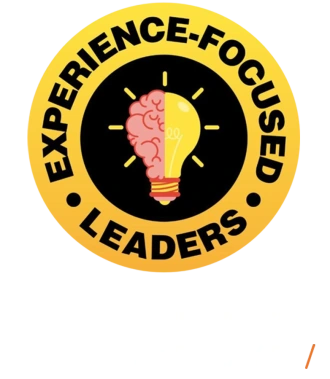Listen to the Podcast Episode on Your Favorite Platform

.svg.png)

Aligning organizational goals with innovative ideas
.png)
Even though I've had relatively senior roles about bringing innovations, I've never had a blank check scenario where my job was to bring a $10 million investment idea to the board and expect it to get approved from a spreadsheet. So I think having this minimal viable innovation or product idea is almost a requirement in many businesses nowadays. (Eric West)
(00:01-07:00)
Eric West, experienced in growth and strategy roles, shares insights on driving change within established institutions.
He highlights the importance of aligning organizational goals with innovative ideas and differentiating between major initiatives and smaller, incremental steps. Eric emphasizes starting with a minimal viable innovation to showcase quick wins and build a strong case for larger projects.
Drawing from experiences at Omnicom Group and CollKodi, Eric discusses challenges within big companies, such as procurement processes and securing buy-in. He emphasizes relationship-building across teams and executing innovation rather than just discussing it.
.png)
The challenges of sparking innovation in large companies
.png)
You have to build a reputation for people to accept your point of view or some of your ideas and be open to listening to them. If you haven't built relationships where they're at least open to listening to your idea, then that's obviously going to be a challenge. (Eric West)
(07:00-14:54)
Eric points to inertia as a major roadblock, explaining how safety and complex decision-making in these organizations often resist big changes.
He emphasizes the power of relationships — building trust and credibility is key to getting your ideas heard. Also, understanding how things work on a practical level earns respect and helps handle objections more effectively.
Reflecting on his experiences at Google and healthcare startups, Eric highlights the need for passion in driving change. He guides vendors to connect with that same passion and align their products with what customers truly need.
Their conversation shifts to providing feedback — an art that Eric emphasizes requires a delicate balance.
.png)

Empowering customer-focused conversations
.png)
If we do this work, is it going to delight our existing customers that much more? Is it going to be able to attract more of those happy customers? If the answers to those aren't yes, then you really have to question why you're working on that initiative. (Eric West)
(14:54-23:06)
Eric West dives into the core of successful product development: understanding your ideal customer thoroughly. He stresses that any innovation must thrill the right customers and boost profits to truly succeed.
Eric talks about the importance of being straightforward when giving feedback to vendors. For him, it's all about ensuring the product aligns with his needs and those of the organization. He reveals that his focus wasn't solely on fixing customer issues. Instead, he aimed to empower sales teams by revamping their tools for better service discussions.
Eric paints a vivid picture of how tools like RELAYTO uplift sales teams by adapting to customers' needs, encouraging dynamic and personalized interactions.
.png)
Ditching Pitch Decks for Real Client Chats
.png)
It feels like there's been this trend of sales programs and processes over the last 10 years. But definitely, the last five years have been way more focused on the discovery call challenge or sales method. You know, “Hey, what's going on with you? Let's understand your business needs and then pivot to the solution that solves those.” And it's been really hard to do that with your standard PowerPoint. Because you've got your 35 pages with 25 in the appendix, and if somebody asks a question, you're quickly, “Yeah, yeah, let me like just click, click, click, click.” And that can interrupt the conversation. You're not focused on your client anymore, you're focused on what you need to do to your deck in order to get to the next part of your sales process. And the flexibility of what we've designed is the ability to take that stress off the salesperson. They can have a natural conversation with a prospect, knowing that it's a click away, at most two clicks away, to get to what the client is on. And that's got to be really important in today's sales process. (Eric West)
(23:06-29:35)
Eric and Alex explore the changing landscape of sales strategies, highlighting the growing importance of customer-focused interactions. Eric shares his frustration with traditional sales pitches that emphasize company history rather than addressing client needs, advocating for a more personalized and streamlined approach.
They discuss the evolution of sales methodologies over the past decade, emphasizing the rise of discovery-based techniques like the Challenge Sale. Eric points out the limitations of lengthy PowerPoint presentations that steer the conversation away from the client's requirements.
The talk highlights how important it is for salespeople to use flexible tools that help them have real, customer-focused chats. The speakers emphasize how listening carefully and changing the conversation based on what the customer wants is key. And with tech that helps switch to the right info quickly, it all flows smoother.
Moreover, the speakers discuss the necessity of diverse content formats, such as videos or stories, to effectively convey complex services or products. Eric draws from evidence-based marketing insights, noting the digital shift and how prospects navigate through websites before engaging in discussions. He questions why sales processes don't align with this behavior, urging the rethinking of prospect discussions to align with client interests and preferences.
.png)

Have better sales chats that match what customers want
.png)
One of the things that we're selling is that we're easy to work with. We can anticipate issues that you may have and we're experts in what we do. So being able to facilitate a conversation that's conversational, but then be able to have that flexibility to move and adjust to what they need. (Eric West)
(29:35-37:24)
Alex and Eric talk about the not-so-obvious parts of sales conversations — beyond the beginning stages. They zoom in on how things change as customers move along the buying journey.
Alex brings up a big question: as customers move through the process, do they change? Do they still want to feel in control? Eric nods to that, mentioning how even top decision-makers might join the conversation later, needing that same sense of control.
Eric points out a big deal: sales talks should match what you promise. If you say your service is smooth and easy, but then talk for ages about your company's history, you're sending mixed messages. That confuses potential clients.
They discuss this weird thing where experts who know better still sell in ways that don’t match what they know about people. It's like knowing everyone learns differently but then selling your services like everyone’s the same.
Eric shares a funny story about a sales training company whose pitch went against what they were supposed to teach. That got them thinking: why do people do things that don’t make sense in sales pitches?
They get into why this happens. It’s partly because people stick to old ways, habits die hard, and they believe that sales is all art and can't change.
But Eric points out that some parts of sales are actually science — you need to understand how people think and act. When you get that, you can have better sales chats that match what customers want.
The big idea here is to take a step back, figure out what works best, and make sure your sales talks match what you promise. That way, you’re not just talking the talk, you're walking it too.
.png)
Real innovation comes from working together with customers
.png)
If you don't have those strong client relationships and understanding, then you're not going to have the right to innovate with them. Because they don't know you and they don't trust you. So we have to focus on that, on the customer. (Eric West)
(37:24-44:25)
Alex and Eric discuss how industries are moving fast, but businesses struggle to keep up.
Eric talks about how they're trying to change and stay connected to what customers already know. They don't just want to shock customers with big changes. Instead, they're trying to understand what customers need and bring that into their business.
They talk about the misconception of making huge changes just for the sake of it. Instead, they believe in working with customers to figure out what's really helpful. Eric stresses that the best ideas often come from listening to customers and finding ways to help them.
.png)

Innovation isn't always about big changes
.png)
What I have sought to do in my career, at varying levels of success, is figuring out what we need to do to make our clients successful. And then figuring out what that means in terms of what we need to build in order to do that. (Eric West)
(44:25-50:51)
Eric mentions historical examples like calling cars "horseless carriages" to make it easier for people to understand.
They talk about how sometimes new ideas need to connect with what people already know. Eric shares the story of Otis Elevators, calling them a "vertical railroad" to help people see them as safe and easy to understand.
They discuss how innovation isn't always about big, complicated things like blockchain.
Shifting to Kodi Collective, Eric talks about how they combined different companies to create a unified service offering marketing execution services. He explains that their success comes from understanding what customers need and solving their problems with expertise and skill.
.png)
The concept behind Kodi Collective
.png)
In today's market, you can't just be a printer, a middleman. It's not just solving the problem, it's also communicating the results. (Eric West)
(50:51-58:08)
Eric discusses the concept behind Kodi Collective: a go-to place where experts handle diverse needs, whether in print platforms or services. He emphasizes that this approach was customer-driven, evolving to meet broader client demands and bridging the gap between traditional services and modern digital tools.
Alex adds that being a single trusted partner for various services is crucial. They discuss the challenge of simplifying complex services for clients and how confusing conversations at the start can lead to frustrating experiences later. They believe that starting with clear, simple discussions is key to making things work smoothly.
.png)

Starting with the customer and moving backward
.png)
The customers are changing, at a minimum, in their consumer digital behaviors. If we're not catching up with that as the B2B innovators, whether we're in marketing, sales or delivery, we're not doing anybody any favors. We're not delighting customers, we're not driving our customer experience team later in the journey to be held to a higher standard. (Alex Shevelenko)
(58:08-1:01)
Alex emphasizes the need for businesses, especially those dealing with complex solutions, to step away from traditional methods and adapt to changing consumer behaviors.
Eric talks about the importance of listening to customers, maintaining brand congruence, and reevaluating approaches. He admits his past inclination towards a more linear, operational approach and encourages others to challenge established industry norms earlier to better align with customer needs.
.png)
Check the the episode's Transcript (AI-generated) HERE.
Other Episodes

Godard Abel | CEO of G2
S 01 | Ep 6 Where You Go for Software: Reach Your Peak


Dean Stocker | CEO of Alteryx
S 01 | Ep 8 Turning Your Customers Into Your Biggest Champions


Peter Fader | Co-Founder of ThetaCLV
S 01 | Ep 10 Turning Your Marketing Into Dollars

Author

Experience-focused Leaders is the #1 Multimedia Podcast! We talk to senior business & tech leaders about the experiences that move forward organizations, customers and society at large. True to form, we mix audio, video, web and eBook formats to turn these authentic conversations into personalized nuggets you'll remember & use.



.png)
